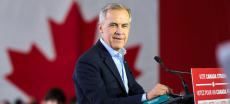Trump Administration Eases Auto Tariffs to Support U.S. Manufacturers
The Trump administration has announced a significant policy change aimed at reducing the burden of automotive tariffs, with plans to cut duties on foreign parts used in domestically produced cars. This move is expected to provide substantial relief to U.S. automakers and workers, according to officials confirmed on Tuesday.
A Major Victory for Trade Policy
Commerce Secretary Howard Lutnick called the decision a “major victory” for President Trump’s trade policy, emphasizing its positive impact on U.S. manufacturing. “This policy reinforces the strong partnership between domestic automakers and American workers,” Lutnick said in a statement released by the White House.
Read more: Hyundai becomes the third largest automaker globally.
Preventing Double Tariffs on U.S.-Assembled Vehicles
Under the new framework, foreign car parts manufacturers will not face additional tariffs when they supply parts to U.S.-based car companies. Companies that were previously charged tariffs on steel, aluminum, and other imported goods will also be relieved from these separate levies. Moreover, companies that have already paid tariffs will be eligible for reimbursements, offering them financial relief.
Response to Industry Concerns
The announcement comes after concerns from the U.S. auto industry, particularly from the Detroit Three automakers—General Motors, Ford, and Fiat Chrysler—about the impact of existing tariffs. According to The Wall Street Journal, this shift is a direct response to industry worries over tariffs’ negative effects on U.S. automakers.
Trump’s Trade Policy Shift Amid Growing Economic Uncertainty
President Trump’s move to ease auto tariffs follows his broader strategy of reshaping global trade relations. The easing of these tariffs is seen as part of a more flexible stance in response to economic challenges. Trump is scheduled to visit Michigan on Tuesday to mark his first 100 days in office, which have seen bold changes in U.S. trade policies.
Industry Opposition to Increased Tariffs
Earlier in the week, a coalition of U.S. auto industry groups sent a letter to the administration, urging Trump not to impose a 25% tariff on imported auto parts. The groups, including major players like Toyota, Volkswagen, and Hyundai, warned that such an increase would result in higher vehicle prices, reduced sales, and costlier repairs for consumers. They also expressed concerns about disrupting the global automotive supply chain, which could lead to production stoppages and job losses.
Conclusion
While the Trump administration’s decision to offer relief to automakers may be seen as a response to growing industry concerns, it aligns with the broader goal of boosting domestic production and creating jobs in the U.S. manufacturing sector. As trade policies continue to evolve, this move signals potential flexibility in addressing concerns while still prioritizing economic growth











